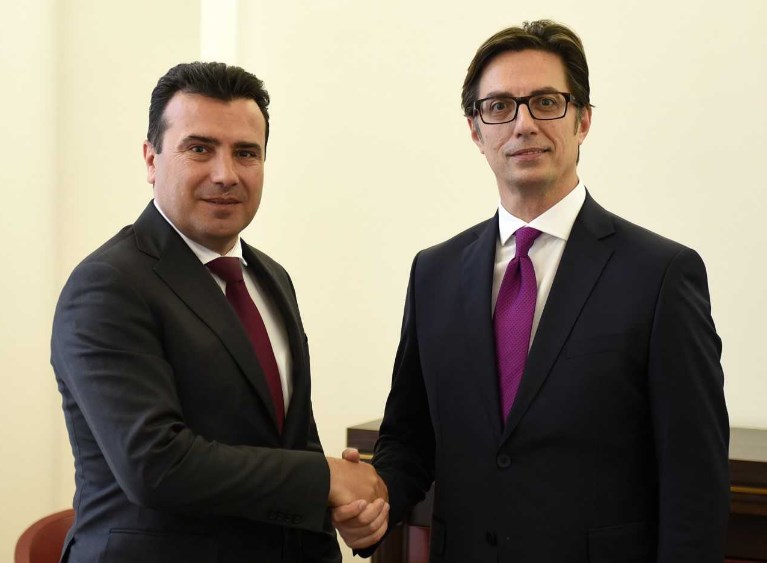Now that the Zaev regime controls the Presidency through Stevo Pendarovski, and with it the pardon power which the President wields, the opposition has warned that Zaev’s calls for reconciliation may quickly turn into amnesties for himself and his associates.
Zaev’s control of the state prosecutors and the Special Prosecutor’s Office means that he is not currently facing an open case, but the politician who was once pardoned and once acquitted over corruption is suspected in a number of new cases, given the meteoric rise of his family businesses after he grabbed power in Macedonia. He also holds a number of political prisoners from VMRO-DPMNE, and Pendarovski’s statement during his inauguration that he will “reach out to the opposition” raised suspicions that Zaev may prepare a grand amnesty. Zaev’s media supporters have also increased accusations aimed at VMRO that the opposition is demanding an amnesty for its supporters, which indicates that a move by Zaev may be presented in this light – as a request from the opposition.
I pledge to be the President of all citizens, of those who voted for me, of those who voted for the other candidates, and of those who didn’t vote. My first step will be to offer a hand of cooperation to the opposition, Pendarovski said to the attendees at his inauguration.
VMRO-DPMNE deputy leader Aleksandar Nikoloski said that it is highly suspicious that SDSM is talking about “reconciliation”.
It is very interesting why SDSM now initiates this reconciliation. According to our findings, it is the first time, I say this in public, the idea of reconciliation came after the end of the presidential election, because it is certain that they will lose the next parliamentary elections and now imagine reconciliation as a way to negotiate with VMRO-DPMNE amnesty for Zoran Zaev, his family and others regarding the crimes they have committed in the past period. If this is how they imagine the reconciliation, then there will be no reconciliation, stressed Nikoloski.




Comments are closed for this post.